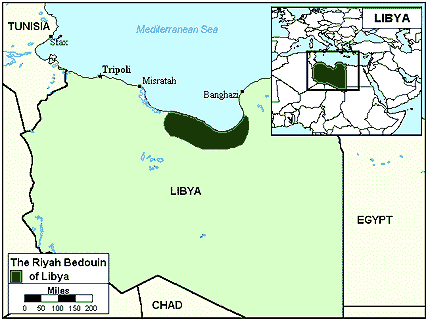The Arab conquests of the seventh century brought about a rapid expansion of the Bedouin tribes. At that time, thousands of Bedouins left the Middle East and began spreading across North Africa. They have adapted well to the nomadic or semi-nomadic way of life in the desert. The name "Bedouin" is derived from the Arab word bedu. It is a term used to differentiate between those groups who migrate with their herds and those which have settled in an urban or agricultural area. Although distinct, both communities rely on each other economically, socially and politically. Many people picture the Bedouin as nomads clothed in long flowing robes, riding across the desert on their camels. In reality however, their identity is more varied. Today, many Bedouin live as semi-nomads, both migrating with their herds and engaging in some form of settled agriculture. Apart from tribal affiliations, there is little to distinguish one group from another. Bedouin tribes speak Arabic and claim Arab descent. One of these tribes is the Riyah. This tribe lives only on the Mediterranean coast of Libya.
Most Riyah Bedouins have given up the nomadic ways of their ancestors, and they are farmers. In the past, it was shameful for a Bedouin to accept a wage-paying job. Today, however, many have been forced by economic circumstances into full or part-time employment. It's difficult for the Riyah tribe to gain access to adequate medical care. They also have a lower literacy rate than the Arab and Berber populations in Libya since they typically live further from urban centers. Bedouin society is organized according to a series of overlapping kin groups. The family is the smallest unit, followed by the clan, then the tribe. The Riyah tribe has a tradition of marrying a fairly close relative like a cousin. This is a way for families to keep the little wealth they have. Like other Bedouins, the Riyah tribe has less physical wealth than most other populations in Libya. In their spare time, the Riyah tribe loves camel racing and falconry as sports. They sometimes bet their livestock on a particular camel race.
While most of the Bedouin are Sunni Muslims (many of the conservative Malikite branch), there is still a basic belief in spirits known as jinnis. The jinnis are, according to Arab legend, spirits capable of assuming human or animal form and exercising supernatural influence over humans. Their folk Islamic rituals do not give them reassurance or peace, and they often feel fearful. The Koran warns them against dabbling in the spirit world, but Muslims often believe they need the help of the spirit world for their daily needs. A few Bedouin tribes have been influenced by the mystic tradition in Islam known as Sufism. A Sufi is someone who believes that he has acquired a special inner knowledge direct from Allah. It is more emotion-based than other forms of Islam, and many Sufis are seeking a relationship with Allah. This is a possible segue to the gospel.
The Bedouins have many physical needs. They often go without enough food, and they rarely have access to produce, which is where we get most of our vitamins and minerals. Commonly, Bedouins suffer from respiratory diseases, and they don't have adequate access to medical facilities since they live in remote areas. Their nomadic lifestyle is rapidly becoming less and less possible given the increasing dryness of their desert homelands.
Pray for the Riyah Bedouins to look to God for their physical and spiritual needs. Pray for the Lord to show himself faithful to the Riyah Bedouins of Libya by providing for all of their needs according to his riches and glory. Pray for the Lord to thrust out loving, faithful workers to Riyah Bedouins in Libya. Pray for an unstoppable movement to Christ among the Riyah Bedouins.
Scripture Prayers for the Bedouin, Riyah in Libya.
| Profile Source: Joshua Project |











